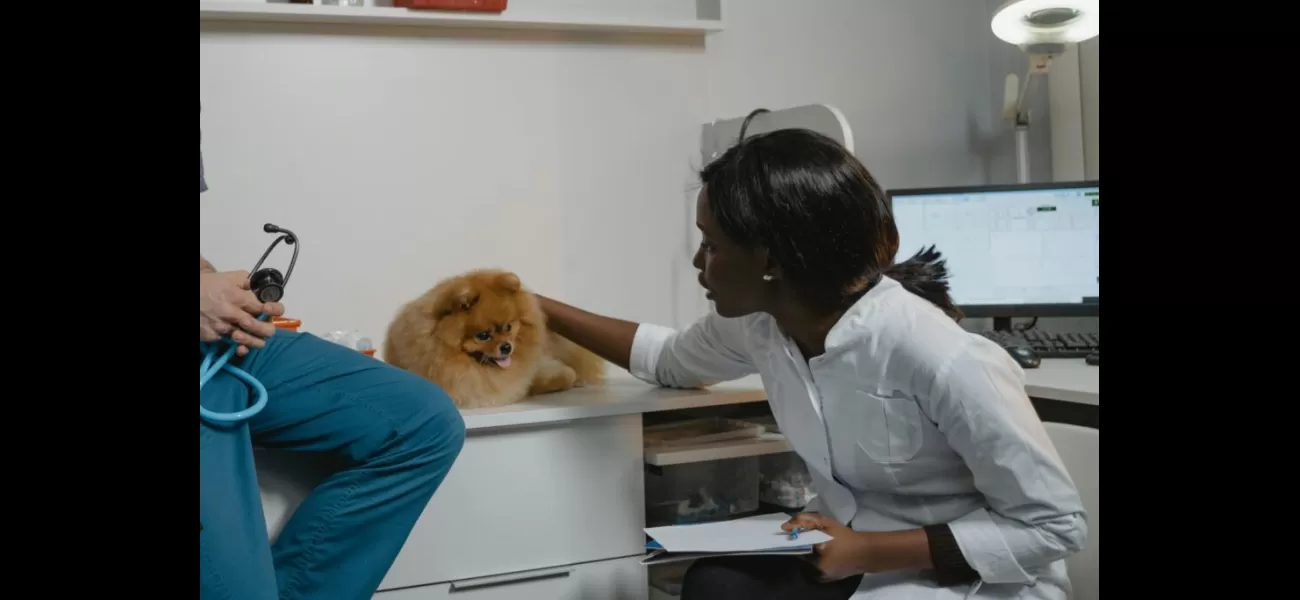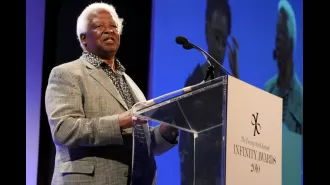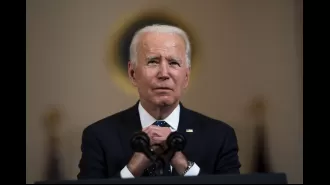UMES to be 2nd HBCU with Vet School
The school will become one of only two HBCUs in the country to have the program and one of about 35 schools to offer the degree.
February 21st 2024.

The University of Maryland Eastern Shore, located in Princess Anne, Maryland, is about to make history as the second HBCU to establish its own veterinarian school. This exciting news comes with plans to start classes in 2026, joining Tuskegee University as the only other HBCU in the nation to offer this program. It's a significant achievement for the university, as there are currently only around three dozen schools in the entire country that grant a degree in veterinary medicine. This will open up more opportunities for aspiring Black veterinarians, as reported by USA Today on February 20th.
Moses Kairo, the dean of agricultural and natural sciences at the university, expressed his hopes that this new school will not only create more diversity in the field but also provide much-needed opportunities in an underserved area. With the limited number of vet schools, there is plenty of room for growth and UMES believes that the timing is just right for this new venture.
Currently, only 1.2% of all veterinarians in the United States are Black, according to a 2021 report by the Bureau of Labor Statistics. Stacy Pursell, CEO of the VET Recruiter, emphasizes the importance of increasing diversity in the field, stating that the need for more veterinarians extends beyond race. With limited spots at veterinary schools, they are forced to turn away many aspiring students. Pursell believes that UMES's new school will help address this issue.
The university's fundraising campaign, with a goal of $60 million, will play a crucial role in the establishment of the school and its designated building. This is the largest financial plan in the school's history, and a portion of the funds will go towards constructing the veterinarian studies building and updating the farm to provide students with hands-on experience. The school plans to offer an accelerated 3-year program with a rigorous curriculum, similar to other prestigious veterinary schools.
Dr. Kimberly Braxton, the interim dean, is determined to ensure that future generations of Black veterinarians are well-prepared to overcome the shortage in this vital field. She acknowledges that this is a massive undertaking, but one that is well worth it for the university and the community as a whole. This groundbreaking achievement by UMES is just one example of the exciting progress being made in the field of veterinary medicine.
Moses Kairo, the dean of agricultural and natural sciences at the university, expressed his hopes that this new school will not only create more diversity in the field but also provide much-needed opportunities in an underserved area. With the limited number of vet schools, there is plenty of room for growth and UMES believes that the timing is just right for this new venture.
Currently, only 1.2% of all veterinarians in the United States are Black, according to a 2021 report by the Bureau of Labor Statistics. Stacy Pursell, CEO of the VET Recruiter, emphasizes the importance of increasing diversity in the field, stating that the need for more veterinarians extends beyond race. With limited spots at veterinary schools, they are forced to turn away many aspiring students. Pursell believes that UMES's new school will help address this issue.
The university's fundraising campaign, with a goal of $60 million, will play a crucial role in the establishment of the school and its designated building. This is the largest financial plan in the school's history, and a portion of the funds will go towards constructing the veterinarian studies building and updating the farm to provide students with hands-on experience. The school plans to offer an accelerated 3-year program with a rigorous curriculum, similar to other prestigious veterinary schools.
Dr. Kimberly Braxton, the interim dean, is determined to ensure that future generations of Black veterinarians are well-prepared to overcome the shortage in this vital field. She acknowledges that this is a massive undertaking, but one that is well worth it for the university and the community as a whole. This groundbreaking achievement by UMES is just one example of the exciting progress being made in the field of veterinary medicine.
[This article has been trending online recently and has been generated with AI. Your feed is customized.]
[Generative AI is experimental.]
0
0
Submit Comment





